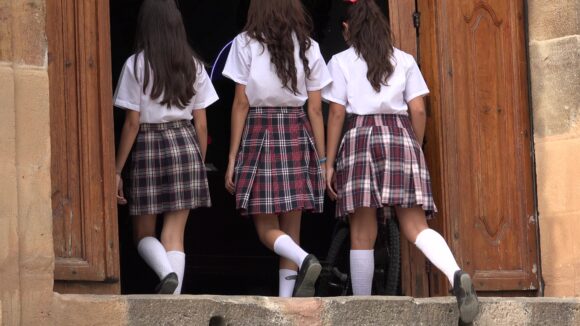The New Jersey Supreme Court has ruled in favor of a Roman Catholic school that fired a teacher who became pregnant out of wedlock.
The high court found that where an employment decision is clearly based on the tenets of the religion, the firing is legal under a recognized exception to the state’s anti-discrimination law.
The court said it was “uncontroverted” that the Church of St. Theresa followed the religious tenets of the Catholic Church in terminating art teacher Victoria Crisitello and thus the church was entitled to a dismissal of the discrimination claim against it.
The high court ruling reversed an appellate court that found St. Theresa’s had violated the anti-discrimination law in firing Crisitello because of her marital status.
While the state’s law against discrimination provides that it is unlawful for an employer to discharge an employee because of marital status or pregnancy, the law also explicitly states “it shall not be an unlawful employment practice for a religious association or organization” to follow “the tenets of its religion in establishing and utilizing criteria for employment of an employee.”
The state Supreme Court said that this exception to liability is an affirmative defense which St. Theresa’s was able to prove.
St. Theresa’s required Crisitello to abide by the tenets of the Catholic faith, including that she abstain from premarital sex, as a condition of her employment. The evidence showed that St. Theresa’s “consistently maintained” its position that Crisitello was terminated for violating Catholic law by engaging in premarital sex. The court noted that Crisitello presented no evidence to counter St. Theresa’s position.
The high court ruling reflected the view of the trial court that had granted summary judgment in favor of St. Theresa’s, finding that the law “clearly protects” the religious institution in requiring that its employees abide by the principles of the Catholic faith. The trial court also found that Crisitello was not terminated for her pregnancy or marital status but was instead terminated for violating the Code of Ethics. It also found the First Amendment barred her claims.
However, the Superior Court, appellate division, reversed, holding that the First Amendment did not bar Crisitello’s claim or discovery and that she had made a prima facie case. The court noted that Crisitello did not perform “vital religious duties” and that neither the Code of Ethics nor the employee handbook expressly mentioned premarital sex or that it would result in termination.
St. Theresa’s appealed that reversal to the state Supreme Court, which has now taken its side.
St. Theresa School uses the official Archdiocese of Newark policies on professional and ministerial conduct, which contains a Code of Ethics that requires employees to “conduct themselves in a manner that is consistent with the discipline, norms and teachings of the Catholic Church.”
In 2011, St. Theresa’s hired Crisitello, who signed an acknowledgment of her receipt and understanding of employment documents including the Code of Ethics. In 2014, the school principal approached Crisitello about the possibility of teaching art full time. During their meeting, Crisitello informed the principal that she was pregnant. A few weeks later, the principal told Crisitello that she had violated the Code of Ethics by engaging in premarital sex and thus could not remain on St. Theresa’s staff. Crisitello filed her complaint alleging discrimination based on pregnancy and marital status.
Was this article valuable?
Here are more articles you may enjoy.


 AI Claim Assistant Now Taking Auto Damage Claims Calls at Travelers
AI Claim Assistant Now Taking Auto Damage Claims Calls at Travelers  Judge Upholds $243M Verdict Against Tesla Over Fatal Autopilot Crash
Judge Upholds $243M Verdict Against Tesla Over Fatal Autopilot Crash  ‘Structural Shift’ Occurring in California Surplus Lines
‘Structural Shift’ Occurring in California Surplus Lines  Stellantis Weighs Using China EV Tech for Affordable Cars
Stellantis Weighs Using China EV Tech for Affordable Cars 